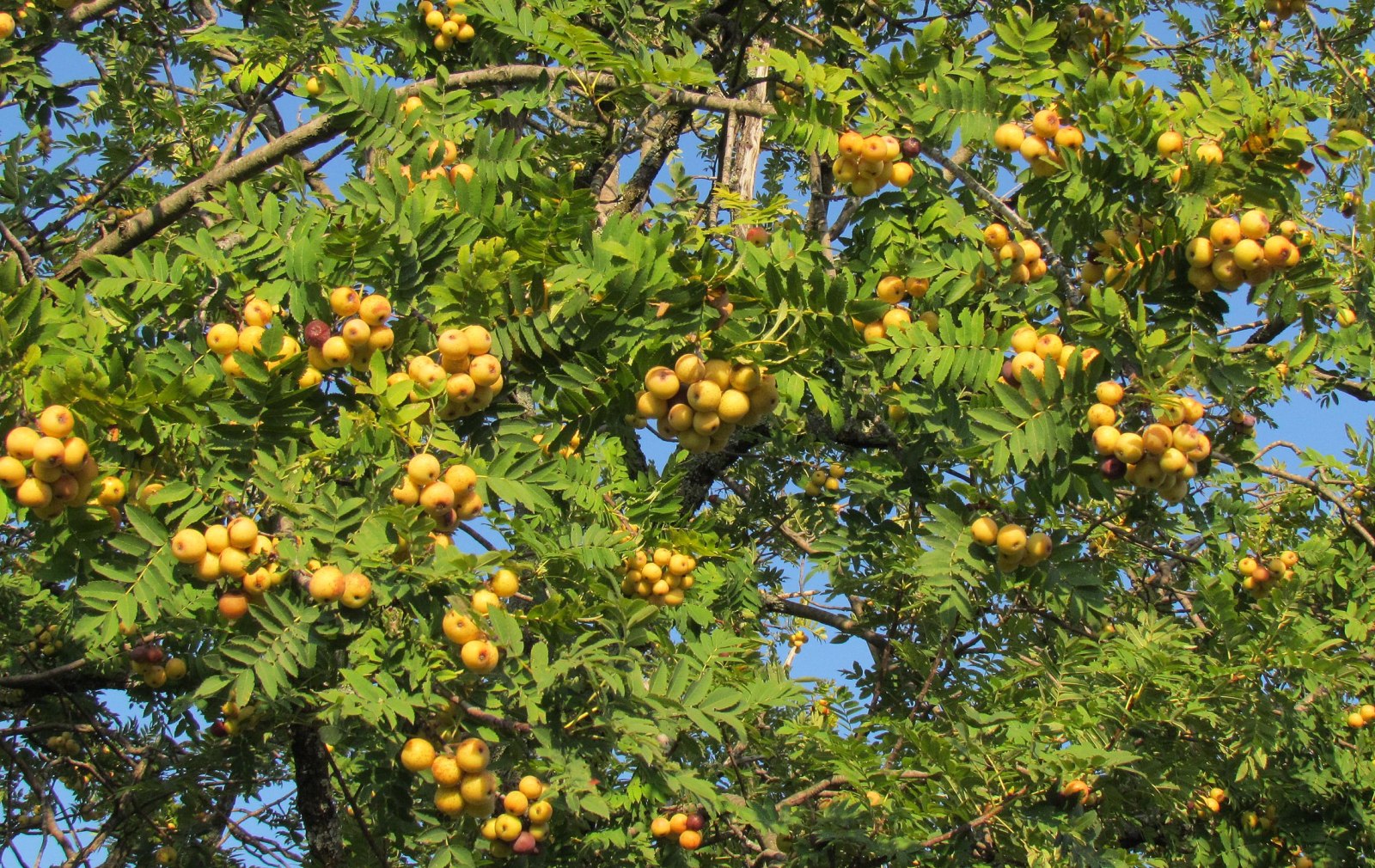Cormus domestica
True service tree
Species Tolerances
- Drought Tolerance: High
- Shade Tolerance: No
- Waterlogging Tolerance: Low
- Frost Tolerance (trees from warmer climates may be frost tolerant, but their flowers may not be): Yes
- RHS Hardiness: H6
- Optimum Conditions for Growth:
(Synonym Sorbus domestica) A medium sized tree with open spreading branches. Favours dry to fresh site conditions and as with other Sorbus species, prefers an alkaline soil >pH7 and is drought tolerant. Found naturally on limestone cliffs. Natively rare probably because this is a light-demanding species and poor competitor. Grows in woodland as an understorey tree but competes weakly because it gets shaded out. Grows well on soft cliffs inland or on the coast where it competes by suckering and layering profusely. Copes well with salty spray. Does not like waterlogging. - Susceptibility to Pest/Disease:
May be susceptible to fire blight and silverleaf and if planted too densely, may suffer other issues affecting native members of the Rosaceae family. Also venturia fungus which causes little harm

Cormus syn Sorbus domestica, Stomaž, Sežana, Slovenia/ Octopus/ https://creativecommons.org/licenses/by-sa/4.0/deed.en
Service to Pollinators
- Summary of Service to Pollinators:
Good pollen and nectar when other sources may be scarce into the ‘June gap’ - Nectar Value to Pollinators: 2 (of 0-3)
- Honeydew Value to Pollinators: 0 (of 0-3)
- Pollen Value to Bees: 2 (of 0-3)
- Flowering Period: April-Jun
Risks
- Human Toxicity: Non-toxic
- Livestock Toxicity: Non-toxic
- Invasive Risk: No
- Suckering: Yes
Products
- Edible Fruit: Yes
- Edible Leaves: No
- Edible Sap: No
- Edible Seeds: No
- Honey, major source in UK: Yes
- For any medicinal potential, see 'Further Details' below.
- Timber: Yes
- Livestock Fodder: Yes
- Other Products:
High quality hard and heavy timber.
Utility
- Nitrogen Fixation: No
- Organic Matter Accumulation: Yes
- Phytoremediation: Insufficient Data
- Deacidification: Insufficient Data
- Windbreak: No
- Soil Erosion Control: Yes
- Shade or Shelter: Yes
- Plant Support: Insufficient Data
- Integrated Pest Management: Insufficient Data
- Wildlife Value: Yes
- Wildlife Value Summary:
General value to biodiversity, fruit and seed for birds and mammals. High value to pollinators - Graduated Nativeness Classification ⓘ: 1 (of 1-10)1. Historic Native
2. Historic Introduction
9. Neutral Introduction
Further Details
Niche medicinal fruit. The fresh fruit is very astringent but when bletted, like medlars, becomes edible. Despite prolific flowering and fruiting, the True service tree produces little viable seed, effectively propagating by root suckers. Synonym Sorbus domestica. Originally from south and east Europe and further south to N. Africa and the Middle East but cultivated in Britain for a long time. A long-lived tree of up to 500 years or more.